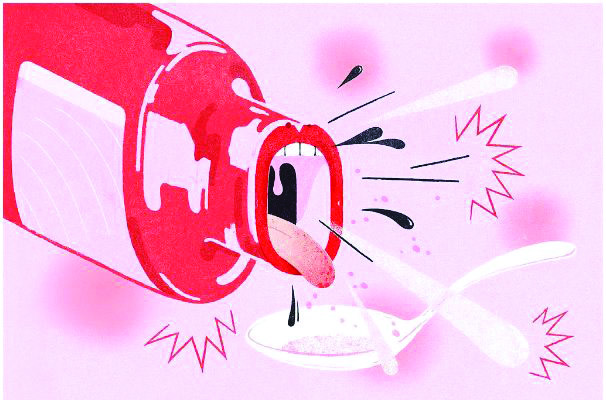Goa is abuzz with excitement as vintage bike and car owners, users, collectors and fans are decking […]

COUGH PLACEBOS
Health, Mar 09- Mar 15 2019 March 9, 2019CAUTION: There’s no proof that OTC (over the counter) medicines help children, and the side effects can be bad. The American Academy of Pediatrics has recommendation avoiding OTC cough and cold medicines for children up to six. After manufacturers voluntarily withdrew products marketed for infants, and changed labels to recommend against use in young children, researchers found a drop in children coming to emergency rooms for problems with these medicines, which in past studies ranged from hallucinations to cardiac arrhythmias to depressed level of consciousness
JANE BRODY talks about cough syrups – the myth and the reality
On a South American trip last month with two of my grandsons, the younger — 14-year-old Tennyson — developed a cough. He had no fever, congestion or fatigue, said he felt fine, ate and slept normally and stayed well-hydrated. But eight days later, after watching a live raptor show for 90 minutes in freezing winds, his cough was noticeably worse.
As the responsible adult, I decided to get him an over-the-counter cough medicine — the Ecuadorean version of Robitussin DM. I now know that my grandmother’s remedy of chicken soup or tea with honey, or perhaps a syrup with sweetened cocoa powder, as a new study found, might have been a better choice to soothe his irritated airways.
Coughs are one of the leading reasons for visits to the doctor and trips to the drugstore, where shelf-long displays of nonprescription cough medicines can overwhelm even the most discerning consumer. And Americans spend some $8 billion a year on over-the-counter cough and cold products.
Yet evidence is sorely lacking for the value of any over-the-counter remedy to treat most coughs, be they wet or dry. More likely, any significant benefit people get from cough medicine is probably due primarily to the placebo effect: You think — you hope — it will help, so it does, at least temporarily. But even when cough medicines help a little, they do not cure or shorten the duration of a cough.
People anxious for relief and convinced that cough medicines should work buy them anyway, Dr. Norman H. Edelman, a pulmonologist at Stony Brook University School of Medicine and scientific adviser at the American Lung Association, told me.
He’s not suggesting that cough medicines don’t work at all, just that there is as yet no proof that they do. They are not totally free of side effects, however rare, and some can be hazardous for people with health problems like high blood pressure or congestive heart failure. And, as their labels state, they should never be given to children younger than 4. In fact, the American Academy of Pediatrics says there’s no reason to use them in children under 6.
Because manufacturers try to hit all bases, over-the-counter cough remedies most often contain combinations of three or four ingredients when a patient may need only one or two. Typical ingredients include a cough suppressant, an expectorant and an antihistamine, when better hydration or drinking hot tea with honey may be all someone really needs to quell a nagging cough.
I haven’t had occasion to try this yet, but Dr. Alyn Morice, a respiratory specialist at the University of Hull and founding member of the International Society for the Study of Cough, recently cited a randomized controlled trial involving 163 patients that showed a chocolate-based cough medicine to be superior to standard cough remedies. The explanation: cocoa has demulcent properties. That is, it soothes irritated mucous membranes by forming a protective film, covering nerve endings that trigger the urge to cough.
Under normal circumstances, cough is a very useful reflex that can help to clear the airways of mucus or an irritating substance and prevent debris or liquids from getting through to the lungs. Coughs become especially troublesome when they linger for weeks on end or when a sudden tickle triggers a coughing fit in the middle of a play, concert or lecture. (Word to the wise: Always come equipped with cough drops that can be opened quietly and, if possible, a small bottle of water to squelch a disruptive cough that won’t quit on its own.)
Most lingering coughs are the residual effect of a cold or flu, and they can last for weeks and weeks, get better or worse, and still not represent anything more than a nuisance, Dr. Edelman said. But the misery associated with coughs sends more than 30 million people to the doctor every year. And there are certainly circumstances under which a doctor should be consulted.
Among them, Dr. Edelman said, are patients with underlying medical conditions like C.O.P.D. (chronic obstructive pulmonary disease) or asthma, even mild cases of asthma. “People with asthma should have an action plan established in consultation with their doctor — what to do ‘in case’ a cough develops,” he said. “It’s best to catch it early, when the inflammation just starts because it’s harder to treat when it’s well established.”
He added, “People with a significant underlying health problem should not wait four weeks to see a doctor.” Also, he said, “if every winter you get cold after cold followed by a cough, you should see a doctor right away because it could represent an underlying problem.”
Other circumstances that warrant medical attention include persistent coughs that interfere with the ability to sleep; coughs associated with fever, chills and feeling unwell; and coughs that produce blood in the sputum.
Then there are the coughs that become chronic, persisting beyond eight or more weeks. They could result from an irritated, inflamed airway that may require treatment with an inhaled corticosteroid to reduce the inflammation, Dr. Edelman said.
Writing in The New England Journal of Medicine, Dr. Ashley Woodcock and Jaclyn A. Smith estimated that chronic cough affects “as much as 12 percent of the general population.” It affects more women than men, most often in their 40s and 50s, and can persist for years “with substantial physical, social and psychological effects,” they wrote.
In addition to respiratory diseases like asthma, possible causes of chronic cough include a persistent postnasal drip that may result from an allergy, sinus infection, airborne irritant, or even exposure to very dry cold air. Depending on the cause, the best treatment may involve an oral antihistamine, nose drops, a vaporizer or, if an infection is found, antibiotics. But Dr. Edelman warned against using a humidifier with a water reservoir that can become contaminated with a fungus unless it is thoroughly cleaned daily. Also, overly humidifying the air can foster dust mites, which are common allergens.
Another often unrecognised cause of chronic cough is GERD, or gastroesophageal reflux disease. Sometimes this condition is not apparent during waking hours, but reflux may occur during sleep, resulting in inhalation of a bit of regurgitated stomach contents or causing a reflex that constricts the airways, Dr. Edelman explained.
Sometimes chronic cough can be a side effect of drug treatments like ACE inhibitors used to treat high blood pressure.
Prolonged bouts of coughing can have their own complications, including stress urinary incontinence, muscle pain, cracked ribs and occasionally retching and vomiting.
(Jane Brody is the Personal Health columnist, a position she has held since 1976. She has written more than a dozen books including the best sellers “Jane Brody’s Nutrition Book” and “Jane Brody’s Good Food Book.”)
Courtesy: Indian Express















